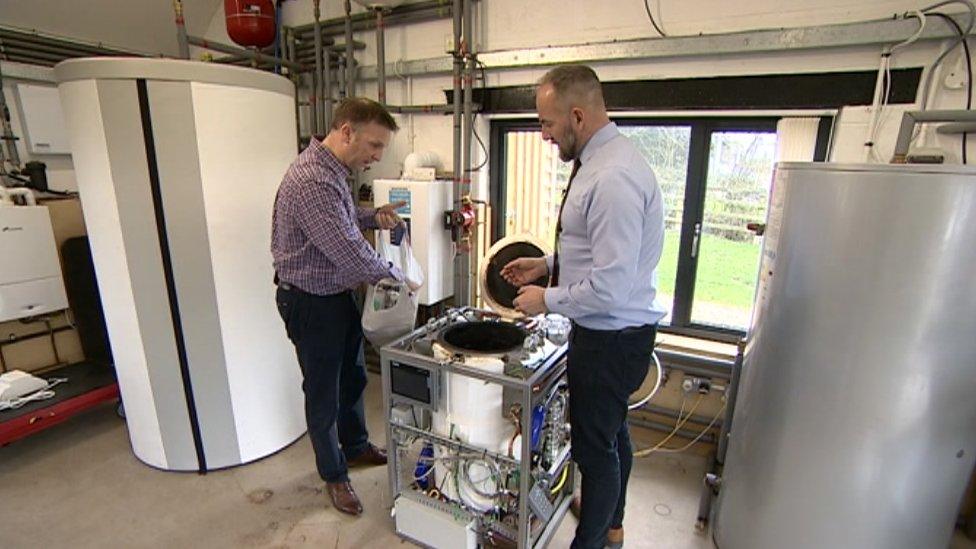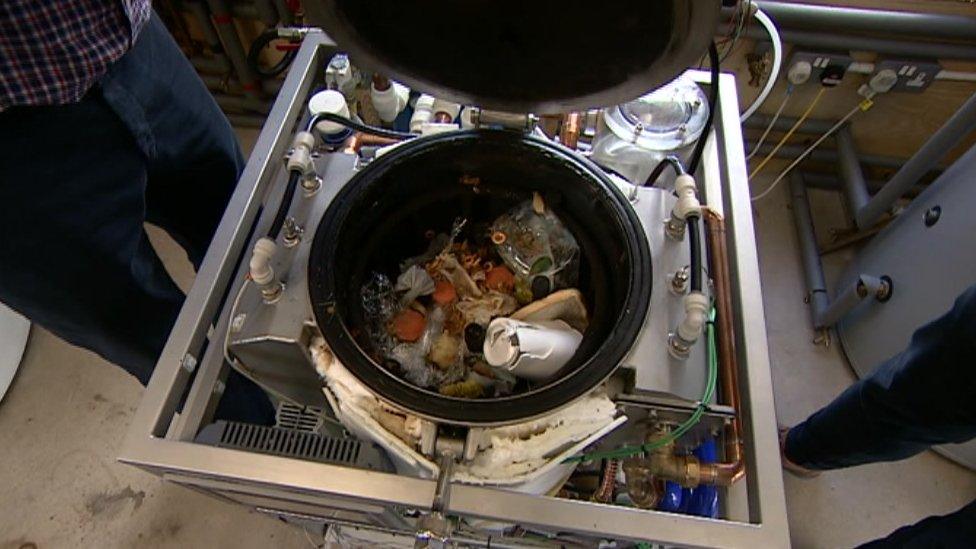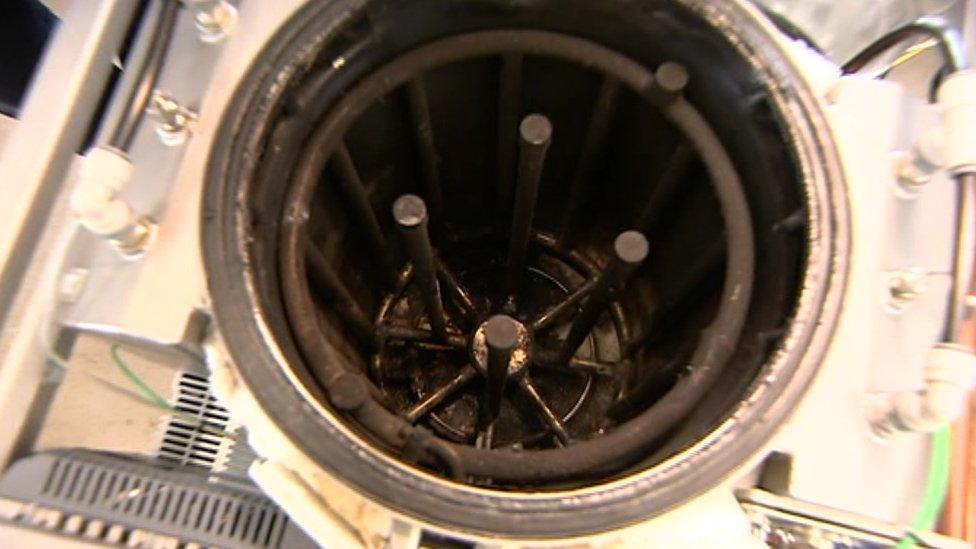New kitchen appliance turning rubbish into hot water
- Published

Nik Spencer, the man behind the HERU, shows me how it works
A kitchen gadget that reduces your rubbish and recycling to spoonful of ash while heating your home's hot water? Sounds like science fiction, and yet that's just what a new invention promises.
In my job there are various sorts of inventions you come across. Ranging from the really crazy ideas to the inventions that seem promising, but that you can't see making it beyond the prototype. Rarest and most exciting are the inventions that are both amazing and clearly in the hands of people who can turn them into reality.
But it's not always possible to tell which is which.
For what it's worth I think this invention, the HERU or Home Energy Resources Unit, external, has a better chance than most of becoming reality. Which is amazing because it is such an extraordinary idea.
A washing machine-sized gadget that you fill with rubbish, leave it running overnight, and wake up to an empty machine that's produced a tank of hot water.

The HERU filled up with a load and ready to start its eight-hour cycle
Not an incinerator
The HERU, designed in Evesham, Worcestershire, is much more than a mini incinerator for your kitchen though, it's very clever indeed.
You put the rubbish in the main chamber - we used takeaway coffee cups, plastic bottles and food trays, nappies and grass cuttings - close the lid and leave the HERU to go through its eight-hour cycle.
First the chamber containing the rubbish is heated up to a hundred degrees. This drives off water from the rubbish and generates some heat for hot water. It also gets rid of much of the oxygen inside the chamber itself.
Then the temperature increases even further and something called pyrolysis takes place. This isn't standard burning, rather the waste is pyrolised, effectively turned into something like charcoal. Then oxygen is added back in and all that pyrolised rubbish is burned to heat more hot water.
After eight hours you open up the lid of the HERU and there's nothing left. The small amount of ash is flushed down the drain. Gases produced are saved and then used in a domestic boiler. The hot water produced is stored in a standard hot water tank.

After eight hours a small amount of ash is all that is left
Rubbish Dyson?
Not everything can be used to feed the HERU. Glass and metal should be recycled as normal. But if they are put in by mistake nothing terrible happens, you just retrieve a very clean bottle or tin can once the cycle is over.
Indeed, this feature can be useful since if you put something like a Pringles tube into the system (packaging that's far too complex for standard recycling) the plastic lid and cardboard are turned into energy and the aluminium inner sleeve and the steel base are left behind and can be recycled as normal.
The prototype I saw at HERU certainly seems to work and the next stage is testing the HERU in the real world. So three systems are being installed in a home as well as a cafe and another business. If all goes to plan then production could being by 2019/20. The team behind it have a strong environmental, business and engineering track record.
We'll be following the project with interest. Could HERU be the Dyson of rubbish?
- Published22 March 2018
- Published26 February 2018